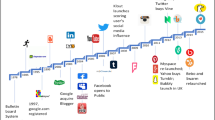Abstract
Web-based social networking is increasingly gaining popularity due to the rapid development of computer networking technologies. However, social networking applications still cannot obtain a wider acceptance by many users due to some unresolved issues, such as trust, security, and privacy. In social networks, trust is mainly studied whether a remote user behaves as expected by an interested user via other users, who are respectively named trustee, trustor, and recommenders. A trust graph consists of a trustor, a trustee, some recommenders, and the trust relationships between them. In this paper, we propose a novel FlowTrust approach to model a trust graph with network flows, and evaluate the maximum amount of trust that can flow through a trust graph using network flow theory. FlowTrust supports multi-dimensional trust. We use trust value and confidence level as two trust factors.We deduce four trust metrics from these two trust factors, which are maximum flow of trust value, maximum flow of confidence level, minimum cost of uncertainty with maximum flow of trust, and minimum cost of mistrust with maximum flow of confidence. We also propose three FlowTrust algorithms to normalize these four trust metrics. We compare our proposed FlowTrust approach with the existing RelTrust and CircuitTrust approaches. We show that all three approaches are comparable in terms of the inferred trust values. Therefore, FlowTrust is the best of the three since it also supports multi-dimensional trust.
Similar content being viewed by others
References
Jøsang A, Hayward R, Pope S. Trust network analysis with subjective logic. In: Proceedings of 29th Australasian Computer Science Conference. 2006, 85–94
Reiter M K, Stubblebine S G. Resilient authentication using path independence. IEEE Transactions on Computers, 1998, 47(12): 1351–1362
Flocchini P, Luccio F L. Routing in series parallel networks. Theory of Computing Systems, 2003, 36(2): 137–157
Colbourn C J. The Combinatorics of Network Reliability. New York: Oxford University Press, 1987
Siewiorec D P, Swarz R S. Reliable Computer Systems: Design and Evaluation, 3rd ed. Natick: A. K. Peters, Ltd., 1998
Hayt W, Kemmerly J, Durbin S, Engineering Circuit Analysis. 7th ed. New York: McGraw-Hill Higher Education, 2007
Hnativ A, Ludwig S A. Evaluation of trust in an eCommerce multiagent system using fuzzy reasoning. In: Proceedings of 18th International Conference on Fuzzy Systems. 2009, 20–24
Liu G F, Wang Y, Orgun M. Trust Inference in complex trustoriented social networks. In: Proceedings of 2009 International Conference on Computational Science and Engineering. 2009, 29–31
Mahoney G, Myrvold W, Shoja G C. Generic reliability trust model. In: Proceedings of 3rd Annual Conference on Privacy, Security and Trust. 2005, 113–120
Taherian M, Amini M, Jalili R. Trust inference in web-based social networks using resistive networks. In: Proceedings of 3rd International Conference on Internet and Web Applications and Services. 2008, 233–238
Gefen D. Reflections on the dimensions of trust and trustworthiness among online consumers. ACM SIGMIS Database, 2002, 33(3): 38–53
Griffiths N. Task delegation using experience-based multidimensional trust. In: Proceedings of 4th International Joint Conference on Autonomous Agents and Multiagent Systems. 2005, 489–496
Xiong L, Liu L. PeerTrust: supporting reputation-based trust for peer-to-peer electronic communities. IEEE Transactions on Knowledge and Data Engineering, 2004, 16(7): 843–857
Wang G, Wu J. Multi-dimensional evidence-based trust management with multi-trusted paths. Future Generation Computer Systems, 2011, 27(5): 529–538
Mui L, Mohtashemi M, Halberstadt A. A computational model of trust and reputation. In: Proceedings of 35th Annual Hawaii International Conference on System Sciences, 2002, 2431–2439
Theodorakopoulos G, Baras J S. On trust models and trust evaluation metrics for ad hoc networks. IEEE Journal on Selected Areas in Communications, 2006, 24(2): 318–328
Sun Y L, Yu W, Han Z, Liu K J R. Information theoretic framework of trust modeling and evaluation for ad hoc networks. IEEE Journal on Selected Areas in Communications, 2006, 24(2): 305–317
Golbeck J, Hendler J. Inferring binary trust relationships in web-based social networks. ACM Transactions on Internet Technology, 2006, 6(4): 497–529
Zuo Y J, Hu W C, O’Keefe T. Trust computing for social networking. In: Proceedings of 6th International Conference on Information Technology: New Generation. 2009, 1534–1539
Anantvalee T, Wu J. Reputation-based system for encouraging the cooperation of nodes in mobile ad hoc networks. In: Proceedings of 2007 IEEE International Conference on Communications. 2007, 3383–3388
Watts D J. Six Degrees: The Science of a Connected Age. New York: W. W. Norton & Company, 2004
Author information
Authors and Affiliations
Corresponding author
Additional information
Guojun Wang is Chair and Professor of Department of Computer Science at Central South University. He is also Director of Trusted Computing Institute at Central South University. He has been an Adjunct Professor at Temple University, USA; a Visiting Scholar at Florida Atlantic University, USA; a Visiting Researcher at the University of Aizu, Japan; and a Research Fellow at the Hong Kong Polytechnic University. His research interests include network and information security, Internet of things, and cloud computing. Dr. Wang is a senior member of CCF, and a member of IEEE and ACM.
Jie Wu is Chair and Professor at the Department of Computer and Information Sciences at Temple University, USA. He was a Distinguished Professor in Department of Computer Science and Engineering, Florida Atlantic University. He served as a Program Director at US NSF from 2006 to 2008. He serves on the editorial board of IEEE Transactions on Computers. He is currently an ACM Distinguished Visitor and the chairman of the IEEE Technical Committee on Distributed Processing (TCDP). His research interests include wireless networks and mobile computing, parallel and distributed systems, and fault-tolerant systems. Dr. Wu is a Fellow of the IEEE.
Rights and permissions
About this article
Cite this article
Wang, G., Wu, J. FlowTrust: trust inference with network flows. Front. Comput. Sci. China 5, 181–194 (2011). https://doi.org/10.1007/s11704-011-0323-4
Received:
Accepted:
Published:
Issue Date:
DOI: https://doi.org/10.1007/s11704-011-0323-4




